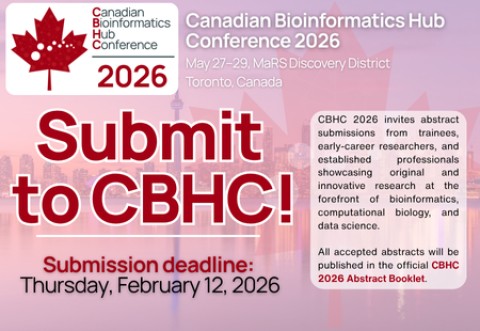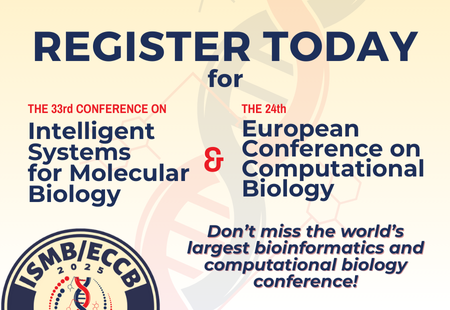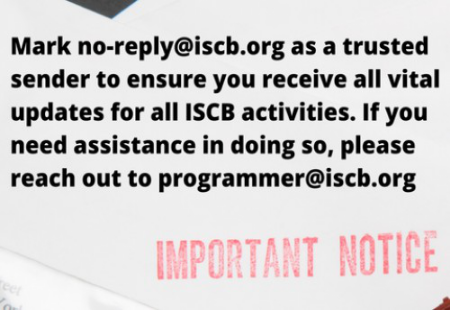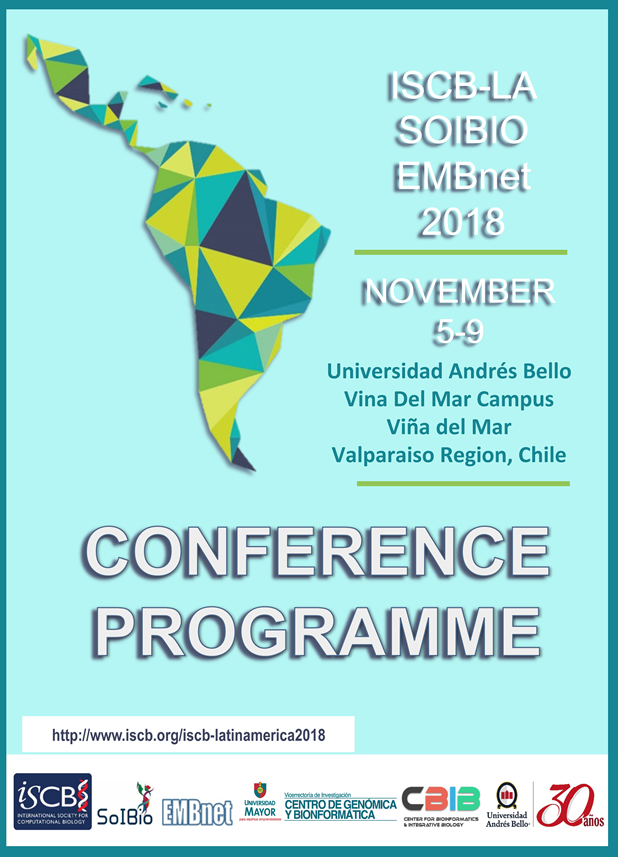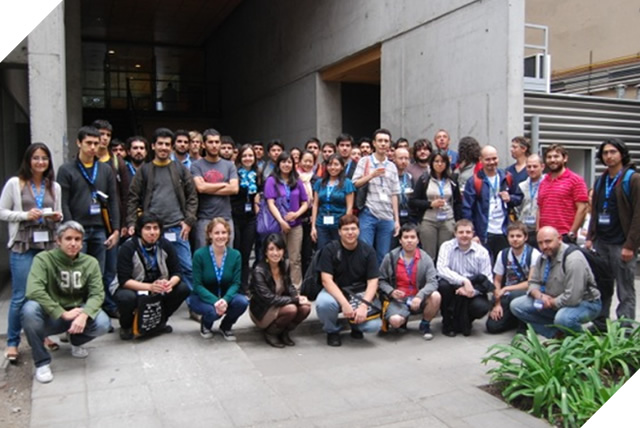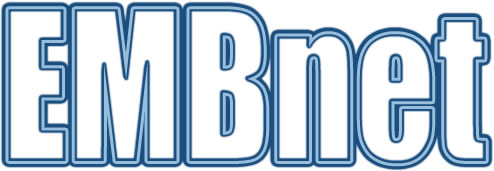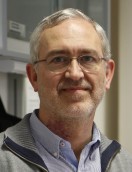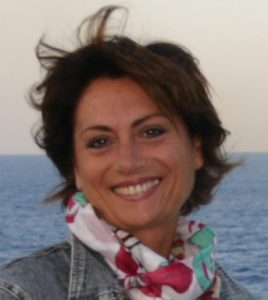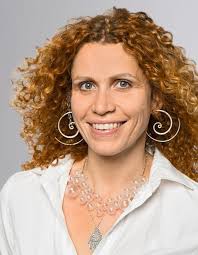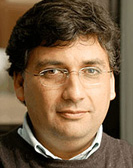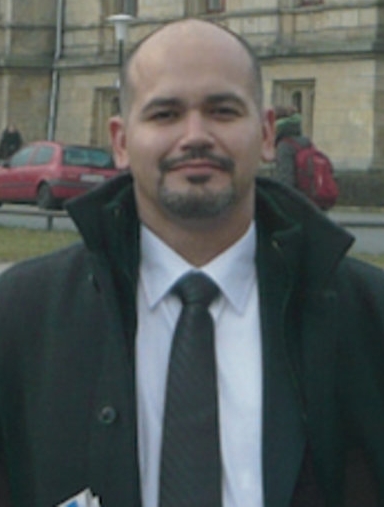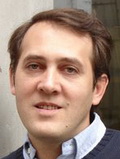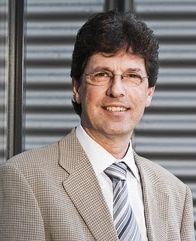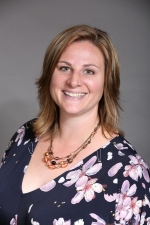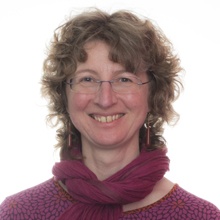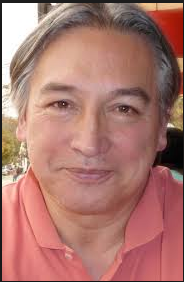KEYNOTE SPEAKERS
Keynote Bios and Abstracts

WENDY GONZALES, PhD
Center for Bioinformatics and Molecular Simulation
Universidad de Talca
Chile
Wendy Gonzàlez currently works at the Center for Bioinformatics and Molecular Simulations (CBSM) at Universidad de Talca, Chile. Wendy does research in Biophysics and Molecular Modeling of ion channels. Her current project is: "Understanding the structural mechanism of selective blockers of pH- gated K2P channels”. Also, Dr. González is co-researcher of the Millennium Nucleus of Ion Channels-Associated Diseases (MiNICAD).
From the atoms to the disease: a way shaped by the modeling of ion channels: There are many diseases related to ion channels. For example, ion channels from the K 2 P family are involved in cancer, arrhythmias and obstructive sleep apnea. One single K 2 P channel contains about 7,000 atoms and this kind of proteins have been the focus of computational approaches in my group to relate their three-dimensional structure to their physiological function. Usually, we embed the protein in a lipid membrane patch surrounded by water molecules and ions totaling around 100,000 atoms. Molecular dynamics simulations provide information on the kinetics of K 2 P channel function.
We have been using additional computational approaches - such as molecular docking- for finding new modulators of K 2 P channels and for elucidating the action mechanisms of small molecules. In this talk, I will present results of collaborations between my research group and others from Latin America and Germany related to the K 2 P channel structure-function. A key aspect of this common research is to validate our models experimentally, or to explain their experimental findings by means of molecular modeling.

DAVID HOLMES, PhD
Center for Bioinformatics and Genome Biology, Fundación Ciencia y Vida
Santiago, Chile
Universidad Mayor
Santiago, Chile
David Holmes is director of the Center for Bioinformatics and Genome Biology at the Fundación Ciencia & Vida, Santiago, Chile and is Full Professor at the University of Andrés Bello. He received a BA (Genetics) from Trinity College Dublin, Ireland (1969) and his Ph.D in Biochemistry from the California Institute of Technology, USA (1973). He was a Damon Runyon Fellow in the Dept. of Chemistry and Chemical Engineering, Caltech from 1973-76. He then held several academic positions from Assistant Professor to Full Professor in the USA and also worked for 6 years (1980-86) at the Research and Development Labs of General Electric. Dr. Holmes has over 160 publications (www.scholar.google.cl). One of his papers became a Scientific Citation Classic (1994). He has made over 480 presentations and invited talks in 35 countries and has graduated 33 doctoral and master’s students. He is a founding member of the Ibero-American Society for Bioinformatics (SOI-BIO) and has worked in Chile for the past 25 years.
Are We Alone in the Universe?: This talk will address the question “are we alone in the universe?” – arguably one of the most important questions posed in human history. Stunning advances in astro-sciences, geochemical-sciences and biology - collectively termed “astrobiology” - are converging on an understanding of how life might have emerged on earth and are turbo-charging the search for habitable environments and the existence of life on other planets and moons in our galaxy and ultimately in the whole universe. Friction at the interface of these converging disciplines is spawning new research opportunities and collaborations in many areas of computational biology and chemistry
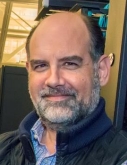 NIKOS C KYRPIDES, PhD
NIKOS C KYRPIDES, PhD
US Department of Energy, Joint Genome Institute, USA
Dr. Kyrpides was born in Greece where he studied Biology at the Aristotle University of Thessaloniki. He received his PhD in Molecular Biology and Biotechnology from the University of Crete. He then turned into Microbiology pursuing his postdoctoral studies with Carl Woese at the University of Illinois at Urbana-Champaign and in Bioinformatics with Ross Overbeek at the Argonne National Laboratory. From 1999 to 2004 he worked in biotech industry in Chicago, IL, where he led the development of the genome analysis and Bioinformatics core. He joined the DOE Joint Genome Institute in 2004 to lead the Genome Biology Program and the development of the data management and comparative analysis platforms for microbial genomes and metagenomes. He became the Metagenomics Program head in 2010, founded the Prokaryotic Super Program on 2011 which he still leads along with the Microbiome Data Science Group.
Dr. Kyrpides has over 25 years of research experience in microbiome research, computational biology, bioinformatics, and data science and published more than 580 peer reviewed papers in the field. He led the development of several pioneering data managements systems in microbial genomics and metagenomics, which are widely used in the community and have several thousand users across the world.
Research in his group is currently focusing on Microbiome Research with an emphasis on Microbiome Data Science. This includes the understanding of structure and function of various microorganisms and microbial communities and the elucidation of the evolutionary dynamics that shape the microbial genomes. To accomplish that, his group is developing novel methods for enabling large-scale comparative analysis, as well as mining and visualization of big data.
Dr. Kyrpides has received several prestigious awards including the USFCC/J. Roger Porter Award from the American Society of Microbiology, the van Niel International Prize for Studies in Bacterial Systematics, an outstanding performance award from Lawrence Berkeley National Laboratory, and the Academic Excellence Prize from Empeirikeion Foundation. He is an elected fellow of the American Academy of Microbiology and he is in the list of the world’s most influential scientific minds according to the Thomson Reuters from 2014-2017.
Microbiome Research: from Products to Data
Microbiology is experiencing a revolution brought on by recent developments in sequencing technology. The unprecedented volume of microbiome data being generated pose significant challenges with respect to analysis and management strategies. But they also bear great new opportunities that are rapidly transitioning Microbiology from product-based to data. Microbiome Data Science is currently advancing our understanding of the structure and function of entire microbial communities, expanding our knowledge of genetic and functional diversity of individual micro-organisms and fuel data-based discoveries. I will describe some of our computational approaches and will emphasize the value of data integration in enabling the exploration of large metagenomic datasets and the discovery of novelty. I will discuss current approaches and success stories for the discovery of novel phylogenetic lineages as well as the exploration of the viral dark matter.

ANA TEREZA RIBEIRO DE VASCONCELOS, PhD
National Laboratory of Scientific Computation – Bionformatics Laboratory
Petrópolis, Brazil
Ana Tereza Vasconcelos is Senior Researcher Scientist at the National Laboratory for Scientific Computing and coordinator of the Bioinformatics Laboratory and the Computational Genomics Unit Darcy Fontoura de Almeida at National Laboratory of Scientific Computation (LNCC). Her team has experience in the area of Bioinformatics and Computational Biology working on the following topics: Genomics, Development of software applications in Bioinformatics and computational tools applied assembly, annotation and comparison of genomes, metagenomics, exomes and transcriptomics applied to many different model organisms.
From virus to human genome through bioinformatics: Bringing together the expertise of bioinformaticians and geneticists is crucial, since very specific and fundamental computational approaches are required for virus, microorganism and human genome research, particularly in an era of big data. Improve existing analytical tools, computational resources, data sharing approaches, new diagnostic tools, and bioinformatic training are crucial. In this talk I will present results in collaboration with several research groups in Brazil related to the Zika virus, neglected and genetic diseases and resistance to antibiotics.
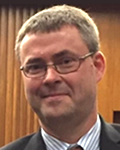 MORTEN SOGAARD, PhD
MORTEN SOGAARD, PhD
WRD Genome Sciences & Technologies
Pfizer
PFIZER. Responsibility for Genome Sciences & Technologies reporting to the president of worldwide R&D, and a member of the worldwide R&D leadership team (WRDLT). As part of his responsibilities Morten oversees Pfizer’s human genetics, computational biomedicine & target validation, companion diagnostic and biospecimen management organizations. He also has responsibility for guiding Pfizer’s investments in platform technologies and is the R&D member on Pfizer’s big data operating committee. He was previously responsible for strategic technology and oncology collaborations as part of External R&D Innovation, and co-led several Pfizer-wide strategy initiatives on Precision Medicine and scientific technologies.
INDUSTRY CAREER. Morten started his industry career at Pharmacia in Lund, Sweden, where he quickly advanced to section head, protein engineering and responsible for all aspects of next generation immuno-oncology antibody therapeutics overseeing a cross functional team across 3 sites in Italy and Sweden. In 1998, Morten moved to AstraZeneca where he headed up the Molecular Sciences Department in Mölndal, Sweden leading about 100 scientists conducting genomics, proteomics, genetics and protein family research. He also headed up AZ’s global nuclear receptor program and was a member of the CVGI management team In 2004 Morten moved to Boehringer Ingelheim in Ridgefield, CT as VP and global head of enabling technology and a member of BI’s global research leadership team. In this role he helped build a world-wide enabling technology function comprising global technology skill centers (Mab Lead discovery, high throughput protein expression, functional genomics, compound pool optimization, and fragment based screening), research informatics and an infrastructure for biologics research, and briefly served as Head of R&D Informatics.
EDUCATION. Morten received his Ph.D. degree in Biochemistry from the University of Copenhagen, Denmark. Thesis work done at the Carlsberg Laboratory, Dept. of Chemistry focused on heterologous protein expression and enzymology, and he subsequently did postdoctoral studies at Sloan Kettering Institute in New York with Nobel Laureate Jim Rothman focusing on protein transport funded by NIH Fogarty and EMBO fellowships. 30+ publications including first author publications in PNAS, JBC, Cell, Gene, and BIO/technology.
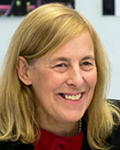 Giving the EMBO Keynote Lecture:
Giving the EMBO Keynote Lecture:
PROFESSOR DAME JANET THORNTON, FRS, FMedSci
European Molecular Biology Laboratory - European Bioinformatics Institute (EMBL-EBI), Wellcome Genome Campus, Hinxton, Cambridge, CB10 1SD.
Janet Thornton is a Senior Research Scientist at the European Molecular Biology Laboratory - European Bioinformatics Institute on the Wellcome Trust Genome Campus at Hinxton, near Cambridge, UK. She was Director of the Institute from 2001-2015. EMBL-EBI provides core bioinformatics data and services and performs bioinformatics research.
Janet’s research is focused on proteins, especially their structure, function and evolution. She is a computational biologist, working at the interface of biology with physics, chemistry, and computing. This includes a detailed analysis of enzyme biocatalysts, their mechanisms and the evolution of new functions. Her group is also investigating variants in developmental diseases and the molecular basis of aging.

